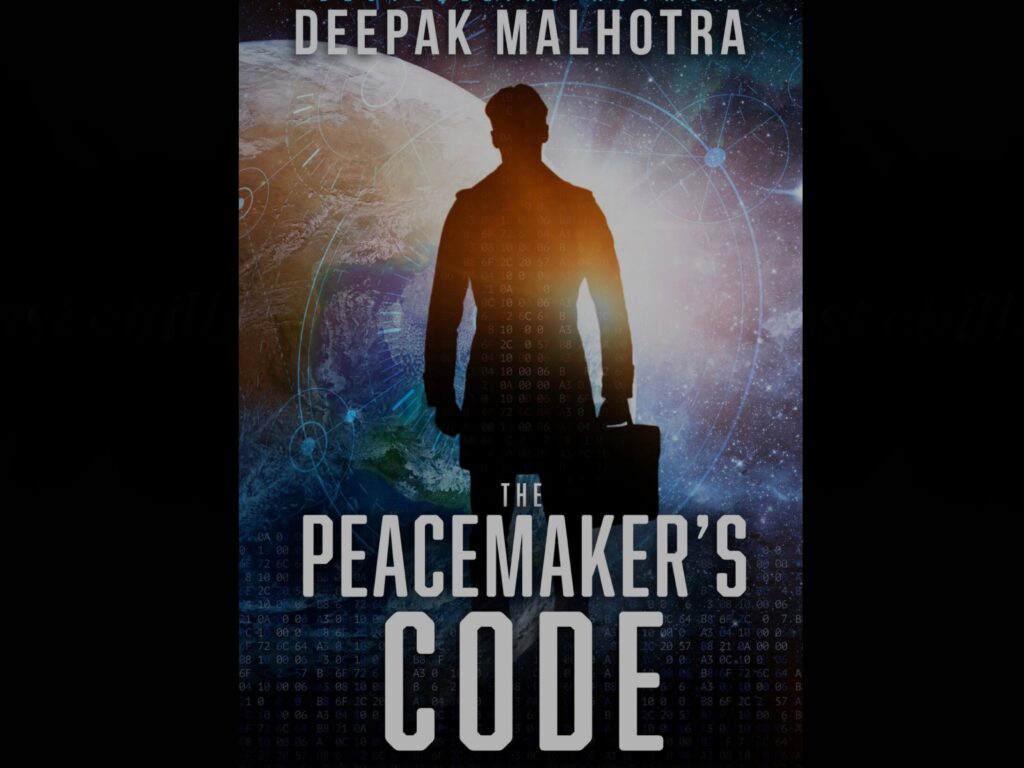I have something crazy to say. I read a book. No, that’s not the crazy part. I know how to read and practice often. The crazy part is that I read a book that made me think. Yes, every book I read makes me think to a degree, but The Peacemaker’s Code, by Deepak Malhotra, really made me think about the subject of the book and more importantly, rethink what I previously thought about humanity. Before you suspect my motive, know that I came across the book in my endless search for Amazon Kindle Prime Reading offerings. I’d never heard of Malhotra, and the only compensation I get is the enjoyment of reading, itself.
That said, let me give you the basics. The novel shows up in the Science Fiction section. It involves an imminent alien invasion. Governments worldwide quickly act to separately strategize but tenuously cooperate for the greater good. For me, that’s where the SciFi stops. What truly made this book meaningful was the fact that one of the prime protagonists is a renowned and respected history professor. His involvement at the behest of a previous student, now in the White House, is where my interest grew.
You didn’t ask, “Why?” Nevertheless, I’m telling you. There is strategic discussion in the novel of potential military defense…or offense. With this possibility, one obviously can’t rule out the infamous Weapons of Mass Destruction (WMD). What transpires through the eyes and actions of the professor, though, made me think of an opposing and far more hopeful term, Tools of Mass Construction (TMD). I’m not a genius, so I’m sure someone else already coined the term long before me. That notwithstanding, I envision a TMD as a method by which we, as individuals and a society, can divert our focus on destroying others (be it physically or figuratively) and refocus our short and long term efforts on constructing a better world.
I can hear the heckling in the back of the room: “Whatever, Hippie! Shut up and go hug some diseased trees!” Some will agree with my opinion. Some won’t. The disagreement, though, will undoubtedly relate to what level of aggression is warranted, based on a perceived threat, but no reasonable person will disagree building up is better than tearing down. As I said, the The Peacemaker’s Code made me rethink. As a veteran, technology professional, wannabe philosopher, and self-proclaimed scholar, each page held a new and interesting perspective on humanity’s collective successes and failures.
This isn’t a book review. If it were, it would be an awful one. This piece is a two-fold suggestion. The first is to read Malhotra’s novel. Even if it doesn’t mentally move you, you’ll see it as a well written and interesting novel. The second is that you try (or try harder) to see any of life’s problems from as many viewpoints as exist. In the end, truly understanding a problem is the only point at which resolution can begin. With that, I’ll say thanks again to Malhotra, and I’ll likely put more thought into the TMC concept for some future writing on it. That is all.
